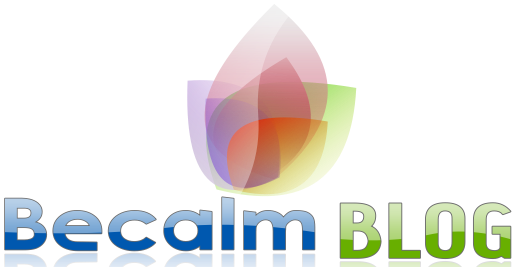The year 2024 is set to bring exciting developments in the world of wellness. With an increasing focus on holistic well-being, individuals are seeking personalized approaches to nutrition, mental health, and overall wellness. The top wellness trends for 2024 are predicted to revolutionize the industry and shape the future of how we prioritize our health.
One of the key trends that will dominate in 2024 is personalized nutrition. People are becoming more aware of their unique dietary needs and preferences, and they are seeking customized plans to optimize their health. From DNA testing to personalized meal plans, individuals are embracing a tailored approach to nutrition that takes into account their specific requirements.
Another significant trend is the growing emphasis on mental health and well-being. In 2024, there will be a greater recognition of the importance of mental well-being and a shift towards holistic practices. Innovative approaches such as mindfulness, meditation, and therapy will be embraced to promote mental resilience and overall wellness.
Technology will continue to play a crucial role in shaping the wellness industry in 2024. Advancements in wearable devices, virtual reality, and AI-powered wellness solutions will revolutionize how we track and improve our health. Virtual wellness experiences will allow individuals to access fitness classes, meditation sessions, and wellness retreats from the comfort of their homes. Wellness apps and tracking devices will enable people to monitor and enhance their physical and mental well-being.
Eco-conscious wellness will also be a significant trend in 2024. With a growing emphasis on sustainability, individuals will seek out eco-friendly products, nature-based therapies, and sustainable practices for their well-being. The connection between personal health and the health of the planet will become increasingly apparent, leading to a greater focus on eco-conscious choices.
Integrative medicine will continue to gain traction in 2024, as people embrace a holistic approach to health. The integration of traditional and alternative medicine practices will offer a comprehensive approach to well-being. Functional medicine, which aims to identify the root causes of health issues and create personalized treatment plans, will be on the rise. Complementary therapies such as acupuncture, herbal medicine, and energy healing will also be increasingly used to enhance overall wellness.
In conclusion, the top wellness trends for 2024 will bring personalized nutrition, a focus on mental health, advancements in technology, eco-conscious choices, and an embrace of integrative medicine. These trends will shape the future of the wellness industry and offer individuals innovative ways to prioritize their health and well-being.
Personalized Nutrition
Personalized nutrition is a rapidly growing trend in the wellness industry, as more and more individuals are recognizing the importance of tailoring their dietary plans to meet their unique needs and preferences. Gone are the days of one-size-fits-all diets; people now want personalized guidance to optimize their health and well-being.
With personalized nutrition, individuals have the opportunity to work with nutritionists or dietitians who can create customized meal plans based on their specific goals, dietary restrictions, and lifestyle factors. This approach takes into account factors such as age, gender, body composition, activity level, and food preferences to develop a plan that is truly personalized.
One of the key benefits of personalized nutrition is the ability to address individual nutritional deficiencies or imbalances. By analyzing an individual’s unique needs, nutrition professionals can identify any gaps in their diet and recommend specific foods or supplements to fill those gaps. This targeted approach can help optimize nutrient intake and support overall health.
Another aspect of personalized nutrition is the use of genetic testing to gain insights into an individual’s genetic makeup and how it may impact their nutritional needs. By understanding genetic variations related to metabolism, nutrient absorption, and food sensitivities, individuals can make more informed choices about their diet and tailor it to their specific genetic profile.
Overall, personalized nutrition is empowering individuals to take control of their health by providing them with personalized dietary plans that are tailored to their unique needs and preferences. It is revolutionizing the way we approach nutrition and is expected to continue to gain popularity in the coming years.
Mental Health and Well-being
Mental health and well-being have become increasingly important in today’s fast-paced and stressful world. People are recognizing the need to prioritize their mental well-being as an essential part of their overall wellness. In recent years, there has been a growing focus on mental health, with innovative approaches and holistic practices being embraced.
One of the key trends in mental health and well-being is the shift towards a more holistic approach. This means considering the whole person – mind, body, and spirit – in the pursuit of well-being. Holistic practices such as mindfulness, meditation, and yoga are gaining popularity as individuals seek to find balance and peace in their lives.
Another important aspect of mental health and well-being is the recognition and destigmatization of mental health issues. There is a growing awareness that mental health is just as important as physical health, and that seeking help and support is a sign of strength, not weakness. This has led to an increase in resources and support systems for individuals struggling with mental health challenges.
In addition to traditional approaches, innovative technologies are also being utilized to support mental health and well-being. Virtual therapy sessions, mental health apps, and online support communities are just a few examples of how technology is being used to improve access to mental health resources.
Overall, the growing focus on mental health and well-being is a positive step towards creating a healthier and happier society. By prioritizing our mental well-being and embracing innovative and holistic practices, we can enhance our overall wellness and lead more fulfilling lives.
Technology and Wellness
Technology is playing a significant role in revolutionizing the wellness industry. With the advancements in wearable devices, virtual reality, and AI-powered wellness solutions, individuals now have access to innovative tools and technologies that can enhance their well-being.
Wearable devices, such as fitness trackers and smartwatches, have become increasingly popular among health-conscious individuals. These devices can track various aspects of physical activity, sleep patterns, and even heart rate, providing valuable insights into one’s overall health and fitness levels. With real-time data and personalized feedback, individuals can make informed decisions and take proactive steps towards improving their well-being.
Virtual reality (VR) is another technology that is transforming the wellness industry. VR experiences allow individuals to immerse themselves in virtual environments that promote relaxation, stress reduction, and mindfulness. From virtual meditation sessions to guided visualizations, VR offers a unique and immersive way to enhance mental well-being and promote a sense of calm and tranquility.
AI-powered wellness solutions are also gaining traction in the industry. These intelligent systems use algorithms and machine learning to analyze data and provide personalized recommendations for optimal health and wellness. From AI-powered chatbots that offer mental health support to virtual health assistants that provide personalized nutrition and exercise plans, technology is empowering individuals to take charge of their well-being like never before.
Virtual Wellness Experiences
Experience the rise of virtual wellness experiences, allowing individuals to access fitness classes, meditation sessions, and wellness retreats from the comfort of their homes.
In today’s fast-paced world, finding time to prioritize wellness can be a challenge. However, with the rise of virtual wellness experiences, individuals can now access a wide range of fitness classes, meditation sessions, and wellness retreats without leaving the comfort of their homes. This innovative approach to wellness brings convenience and flexibility to those seeking to improve their physical and mental well-being.
Virtual fitness classes are becoming increasingly popular, offering a variety of workout options to suit different preferences and fitness levels. Whether it’s high-intensity interval training (HIIT), yoga, or dance workouts, individuals can participate in live or pre-recorded classes led by professional instructors. The interactive nature of these virtual classes allows participants to receive guidance and motivation, just as they would in a traditional fitness studio.
Moreover, virtual meditation sessions provide an opportunity for individuals to find inner peace and relaxation. Guided by experienced meditation teachers, these sessions offer techniques to reduce stress, improve focus, and enhance overall well-being. With the convenience of virtual platforms, individuals can create a tranquil space in their own homes and embark on a journey of self-discovery and mindfulness.
For those in need of a rejuvenating getaway, virtual wellness retreats offer an immersive experience without the need for travel. These retreats provide a holistic approach to well-being, combining various activities such as yoga, meditation, nutrition workshops, and self-care practices. Participants can connect with like-minded individuals and receive expert guidance from wellness professionals, all from the comfort of their own homes.
Overall, virtual wellness experiences have revolutionized the way individuals can engage in self-care and prioritize their well-being. With just a click of a button, people can access a wide range of fitness classes, meditation sessions, and wellness retreats, making it easier than ever to incorporate wellness into their daily lives.
Wellness Apps and Tracking Devices
Wellness apps and tracking devices have become increasingly popular tools for individuals looking to monitor and improve their physical and mental well-being. These innovative technologies offer a convenient and accessible way for people to take control of their health and make positive lifestyle changes.
With the help of wellness apps, individuals can track their daily activities, such as exercise, sleep, and nutrition, and receive personalized recommendations based on their goals and preferences. These apps often provide valuable insights and analytics, allowing users to gain a better understanding of their habits and make informed decisions for their well-being.
In addition to wellness apps, tracking devices such as fitness trackers and smartwatches have gained widespread popularity. These devices can monitor various aspects of health, including heart rate, steps taken, and even stress levels. By wearing these devices, individuals can stay motivated, set goals, and track their progress towards a healthier lifestyle.
Furthermore, wellness apps and tracking devices often offer features such as guided meditation, breathing exercises, and sleep tracking, which can contribute to improved mental well-being. These tools provide individuals with the resources and support they need to manage stress, improve sleep quality, and enhance overall mental health.
Overall, the increasing use of wellness apps and tracking devices is empowering individuals to take a proactive approach to their health and well-being. By utilizing these technologies, people can monitor their progress, make informed decisions, and make positive changes that lead to a healthier and happier life.
Eco-conscious Wellness
Eco-conscious wellness is a rapidly growing trend in the wellness industry, as more individuals are becoming aware of the impact their choices have on the environment. This subheading explores the increasing emphasis on sustainable practices, eco-friendly products, and nature-based therapies for overall well-being.
One of the key aspects of eco-conscious wellness is the adoption of sustainable practices. This includes reducing waste, conserving energy, and using environmentally friendly materials. Many wellness centers and retreats are implementing eco-friendly initiatives such as recycling programs, energy-efficient lighting, and organic farming practices.
In addition to sustainable practices, eco-conscious wellness also involves the use of eco-friendly products. This includes natural and organic skincare products, non-toxic cleaning supplies, and biodegradable materials. By choosing these products, individuals can minimize their exposure to harmful chemicals and reduce their ecological footprint.
Nature-based therapies are another important component of eco-conscious wellness. These therapies utilize the healing power of nature to promote well-being. Examples include forest bathing, where individuals immerse themselves in nature to reduce stress and improve mood, and eco-therapy, which involves outdoor activities and nature-based exercises.
Overall, eco-conscious wellness is gaining popularity as individuals recognize the importance of taking care of both themselves and the planet. By embracing sustainable practices, using eco-friendly products, and engaging in nature-based therapies, individuals can enhance their well-being while also contributing to a healthier and more sustainable future.
Integrative Medicine
Integrative Medicine is a rapidly growing field that combines the best of traditional medicine with alternative practices, offering a holistic approach to health and wellness. It recognizes that optimal health goes beyond just treating symptoms and focuses on addressing the root causes of illness. By integrating various modalities, such as acupuncture, herbal medicine, and mind-body techniques, integrative medicine aims to promote overall well-being and restore balance to the body, mind, and spirit.
Traditional medicine, with its evidence-based treatments and pharmaceutical interventions, is complemented by alternative therapies that have been used for centuries in different cultures. This integration allows individuals to benefit from the strengths of both approaches, resulting in a comprehensive and personalized treatment plan.
With the rise of integrative medicine, more people are embracing a proactive role in their own health and seeking out practitioners who can provide a holistic perspective. This approach considers the individual as a whole, taking into account their lifestyle, nutrition, emotional well-being, and environmental factors. By addressing the underlying causes of illness and promoting self-care, integrative medicine empowers individuals to take control of their health and make informed decisions about their well-being.
Functional Medicine
Functional Medicine is a rapidly growing field that aims to address the underlying causes of health issues rather than just treating the symptoms. Unlike traditional medicine, which often focuses on managing symptoms with medication, functional medicine takes a holistic approach by considering the unique needs and circumstances of each individual.
One of the key principles of functional medicine is identifying the root causes of health problems. This involves looking beyond the surface-level symptoms and delving deeper into factors such as genetics, lifestyle, diet, and environmental influences. By understanding the underlying causes, functional medicine practitioners can develop personalized treatment plans that target the specific imbalances or dysfunctions contributing to the individual’s health issues.
Functional medicine also emphasizes the importance of a collaborative and patient-centered approach. Practitioners spend time listening to their patients’ concerns, gathering detailed medical histories, and conducting comprehensive evaluations. This enables them to gain a comprehensive understanding of the individual’s health and develop a tailored treatment plan that considers their unique circumstances and goals.
Another distinguishing feature of functional medicine is its focus on prevention and optimizing overall well-being. Rather than waiting for symptoms to arise, functional medicine aims to identify and address potential health risks before they become major problems. This proactive approach involves lifestyle modifications, dietary changes, stress management techniques, and targeted supplementation to support the body’s natural healing and resilience.
In summary, functional medicine is a holistic approach to healthcare that seeks to identify the root causes of health issues and create personalized treatment plans for optimal well-being. By addressing the underlying imbalances and dysfunctions, functional medicine aims to promote long-term health and prevent future health problems.
Complementary Therapies
Complementary therapies are gaining popularity as individuals seek alternative approaches to enhance their overall wellness. These therapies, such as acupuncture, herbal medicine, and energy healing, offer holistic solutions that focus on restoring balance and promoting well-being.
Acupuncture, a traditional Chinese medicine practice, involves the insertion of thin needles into specific points on the body to stimulate energy flow and alleviate various ailments. It is believed to restore the body’s natural balance and promote healing.
Herbal medicine, also known as herbalism, utilizes the healing properties of plants to address a wide range of health concerns. Herbal remedies are carefully formulated to target specific conditions and promote overall wellness. They can be taken in the form of teas, tinctures, capsules, or topical applications.
Energy healing, on the other hand, focuses on balancing and harmonizing the body’s energy systems. It encompasses various modalities, such as Reiki and Qigong, which aim to remove energy blockages and promote the free flow of vital energy throughout the body. Energy healing can help reduce stress, enhance relaxation, and support the body’s natural healing processes.
These complementary therapies work in conjunction with traditional medical approaches to provide a holistic approach to wellness. They are increasingly recognized for their potential to enhance overall well-being, improve quality of life, and support the body’s natural healing abilities.
Frequently Asked Questions
- What is personalized nutrition?
Personalized nutrition refers to the practice of tailoring dietary plans and recommendations to meet an individual’s specific needs and preferences. It takes into account factors such as age, gender, health conditions, and lifestyle choices to create a personalized approach to nutrition.
- Why is mental health and well-being important?
Mental health and well-being are crucial for overall wellness. Taking care of our mental health can improve our mood, reduce stress levels, and enhance our ability to cope with daily challenges. It involves adopting holistic practices and seeking innovative approaches to promote mental well-being.
- How is technology revolutionizing the wellness industry?
Technology is transforming the wellness industry in various ways. Wearable devices allow individuals to track their physical activity and monitor their health. Virtual reality enables virtual wellness experiences, bringing fitness classes and meditation sessions to our homes. AI-powered wellness solutions provide personalized recommendations for improving well-being.
- What are eco-conscious wellness practices?
Eco-conscious wellness focuses on adopting sustainable practices and using eco-friendly products to promote personal well-being while minimizing harm to the environment. It involves embracing nature-based therapies, reducing waste, supporting ethical brands, and connecting with nature for overall wellness.
- What is integrative medicine?
Integrative medicine combines traditional and alternative medicine approaches to promote holistic health and well-being. It emphasizes the integration of mind, body, and spirit in the healing process and encourages individuals to explore a range of treatment options to address their health concerns.
- What is functional medicine?
Functional medicine focuses on identifying the root causes of health issues rather than just treating symptoms. It aims to understand the underlying imbalances in the body and create personalized treatment plans that address these imbalances for optimal well-being.
- What are complementary therapies?
Complementary therapies are non-conventional practices that are used alongside conventional medical treatments to enhance overall wellness. These may include acupuncture, herbal medicine, energy healing, and other holistic approaches that support the body’s natural healing processes.






